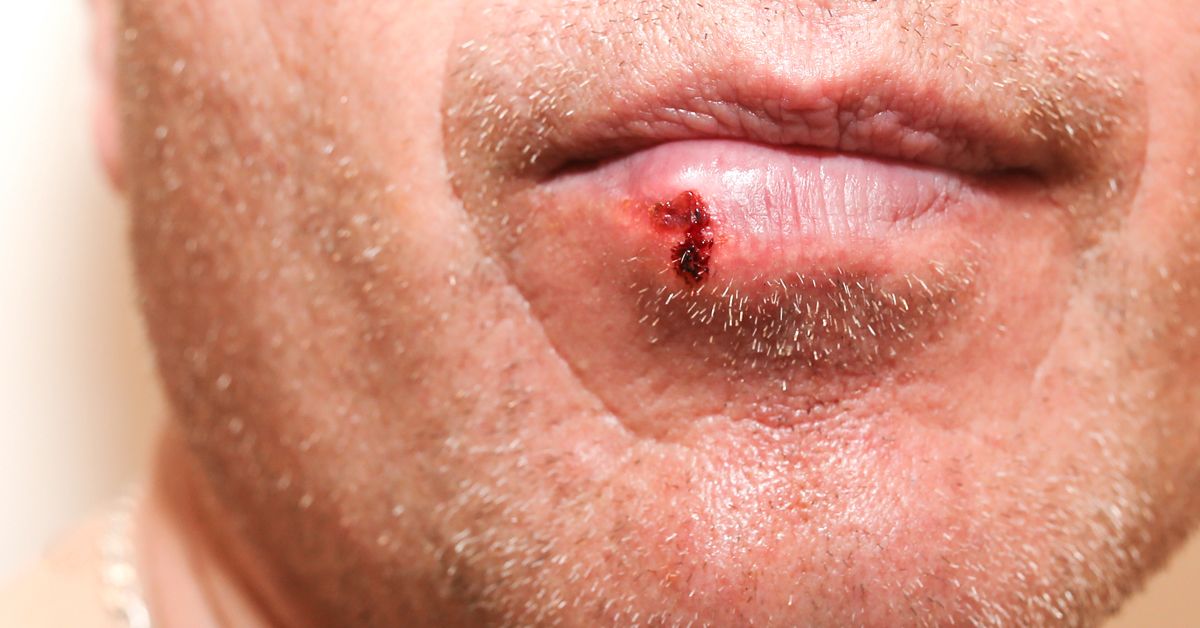All About Lip Cancer: Symptoms, Spread, and Outlook …C0NTINUE READING HERE >>>
Survival rate and outlookFactorsLip cancer spreadSymptomsTreatmentFAQSummary
Lip cancer tends to spread slower compared to other types of cancers. Because of that, the survival rates for lip cancer are relatively high when detected and treated early.
Lip cancer is a type of oral (lips to back of mouth) cancer that begins in the cells of your lips.
There are two main types of lip cancer: a more common squamous cell carcinoma and a less common basal cell carcinoma.
This means that tumors can develop in squamous cells (flat cells in the middle and outer layers of your lips) or basal cells (round cells in the outer layer of your lips).
Here, we focus on the survival rates, factors that influence these rates, symptoms, and treatment options for lip cancer.
Lip cancer survival rate
Lip cancer has the highest survival rate of all oral cancers.
According to the National Cancer Institute, the 5-year survival rate for lip cancer is approximately 90%. This high rate is mainly due to the cancer’s slow progression and the effectiveness of modern therapies.
However, survival rates can vary based on several factors, most importantly, your cancer’s stage. Cancer that hasn’t yet spread (early stage) has a 94% 5-year survival rate.
But metastatic lip cancer’s 5-year survival rate goes down from 63% to 38%, depending on how far it has spread.
What affects the survival rate for lip cancer?
Several factors can influence the survival rate for lip cancer:
Stage of cancer at diagnosis: Early detection of lip cancer significantly improves survival rates. The American Cancer Society recommends routine dental check-ups and self-exams to help catch lip and other oral cancers early.Type of cancer: Aggressive lip cancers have lower survival rates.Treatment options: The type and effectiveness of the treatment can affect survival. Surgery to remove cancer and radiation therapy are the most common therapies for lip cancer.Your age and overall health: Research suggests that older people have slightly lower survival rates than those younger than 65 years.Access to medical care: People who don’t have access to regular medical care may face a worse survival outlook.Race and ethnicity: Studies suggest that Black and American Indian/Alaska Native people have lower oral cancer survival rates.Drinking alcohol and using tobacco: Alcohol and tobacco products (such as cigarettes, smoking pipes, and chewing tobacco) decrease oral cancer survival rates.
Where can lip cancer metastasize?
Left untreated, lip cancer can spread (metastasize) to other parts of the body. Common areas where lip cancer can metastasize include:
lymph nodesjawboneother tissues within the mouthlungs and other parts of the body
Lip cancer symptoms
Catching the symptoms of lip cancer early can drastically improve your survival outlook. Common symptoms include:
a persistent sore or ulcer on the lip that does not heala lump or thickening in the lipwhite or red patches on the lippain or other sensations in the lipbleeding from the lipchanges in lip color or texturedifficulty in moving the jaw or swallowingswollen lymph nodes in the neck
If you notice any of these symptoms, be sure to seek prompt medical attention.
How is skin cancer removed from the lips?
Treatment for lip cancer depends on the stage and extent of the disease. The most common treatments include surgery to remove the cancerous cells and radiation therapy, often in combination with surgery, to destroy any remaining cancer cells.
Other treatments for lip cancer include:
chemotherapytargeted therapyimmunotherapy
Frequently asked questions about lip cancer
Let’s discuss a few questions that people frequently ask their doctors about lip cancer.
Are lip cancers painful?
Lip cancers can cause pain, tingling, and numbness. However, this cancer may often be painless, especially in the early stages.
Is lip cancer deadly?
Lip cancer can be deadly if left untreated, especially for a long time. The survival rate is high, but advanced cases can be more challenging to treat.
Is lip cancer curable?
Lip cancer is curable, particularly when detected early. Treatment options are highly effective, and many people experience full recovery.
Does lip cancer spread quickly?
Lip cancer generally spreads slower compared to other types of oral cancers. However, early detection and treatment are crucial to prevent metastasis.
The takeaway
Lip cancer has a high survival rate and is generally very curable. But survival rates are lower in cancers that have spread to other tissues, making early detection crucial.
Regular dental screenings and self-exams can help catch cancer early. Factors like your cancer type, stage, and your age and ethnicity can influence survival rates.
If you notice any unusual changes in your lips, be sure to speak with a doctor promptly to ensure the best possible outcome.
>
